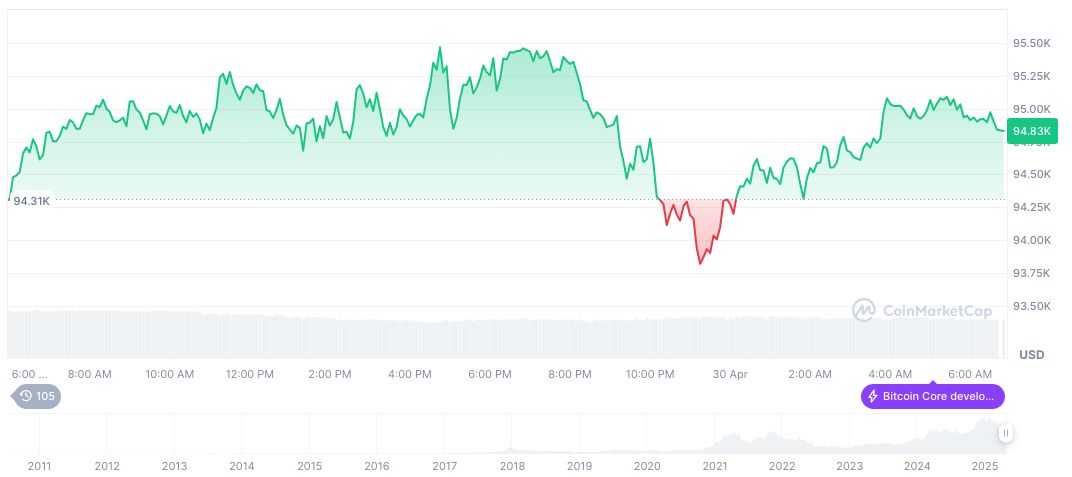- The North Carolina House passes a bill for crypto investments.
- 5% of state funds for digital assets like Bitcoin allowed.
- Opposition cites financial risks and potential gambling concerns.
North Carolina has approved House Bill 92, permitting up to 5% of state funds in cryptocurrencies, with 71 votes in favor.
The decision expands North Carolina’s investment avenues amid existing pension shortfalls. The bill, headed to the Senate, mirrors Arizona’s recent actions.
North Carolina House Passes Crypto Investment Bill
The North Carolina House of Representatives recently passed House Bill 92, enabling state funds to be invested in approved cryptocurrencies. The bill received 71 votes in favor and now seeks Senate approval. Representative Destin Hall led this legislative effort, supported by State Treasurer Brad Briner.
Investments to diversify the state’s portfolio address pension system challenges. The bill restricts crypto investments to 5% of the state’s funds and demands independent security assessments for involvement.
Mike Schietzelt, Wake County Republican and primary sponsor of HB 92, “What this does is allow the state treasurer to do his job. It doesn’t direct him to invest in anything, but it simply opens up one more asset class that the state can take advantage of to ensure the long-term fiscal health.”
State Strategy: A Broader Trend in Digital Asset Inclusion
Did you know? As of now, North Carolina follows Arizona in exploring governmental cryptocurrency investments, signaling an important shift in state-level financial strategies towards digital assets.
Bitcoin (BTC) is currently priced at $94,966.92 with a market cap of $1.89 trillion. BTC holds a 63.58% market dominance. Despite a -0.15% decline in the last 24 hours, it gained 2.32% over seven days. This data is attributed to CoinMarketCap and reflects notable trends in the crypto market.
Coincu research suggests North Carolina’s action aligns with a broader trend of digital asset inclusion among states. Moving forward, regulatory clarity and technological advancements could enhance the state’s investment security and offer fiscal advantages.
Source: https://coincu.com/335161-north-carolina-crypto-investments/

